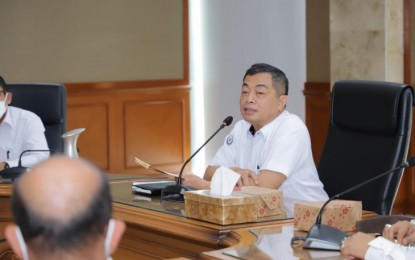
Marine Affairs and Fishery Ministry's Secretary General Antam Novambar. (ANTARA/HO-KKP/FR)
JAKARTA – The Indonesian government has called on Asean countries to handle potential hurdles of export to the United States following the implementation of US Marine Mammal Protection Act (US MMPA).
Secretary General of the Marine Affairs and Fisheries Ministry Antam Novambar noted in a press statement on Sunday that one of the efforts being pushed was to focus on improving small-scale fishery in Asean.
"This is important because it is related to the performance of Asean member countries' fishery product exports to the global market, specifically America," he said.
The issue of small-scale fishermen and cultivators, whose number is dominating in the fishery sector, potentially affects the performance of export because it is related to the product standardization.
To this end, during the Asean Sectoral Working Group on Fisheries (ASWGFi) meeting, the Indonesian delegation urged the United States to boost both capacity and technical supports so that Asean countries can meet those standards.
This became a collective consideration because it can potentially become a new non-tariff hurdle and will affect fish and fishery products export of Asean member countries to the US market, Novambar opined.
To bolster the competency of small-scale fishermen and cultivators, Indonesia has initiated two concepts in the capture fisheries and aquaculture sectors.
The concept in capture fisheries sector involves food security and poverty reduction through the implementation of Food and Agriculture Organization (FAO) guidelines.
Meanwhile, the concept in aquaculture came in the form of collective understanding on sustainable cultivation by encouraging sustainable fish cultivation approach.
The two initiative proposals had been ratified and their documents will be formulated by Asean countries and partners such as FAO and Southeast Asian Fisheries Development Center (SEAFDEC), Novambar said.
"To this end, during the 30th ASWGFi meeting held recently, the ministry encouraged Asean countries to collectively participate in formulating this regional strategy to pay attention to small-scale fishery that dominates Asean's fishery," he continued.
ASWGFi meeting is the only official forum in Asean that handles issues in fishery such as capture capacity, capture region, IUU Fishing eradication, conservation and habitat, and climate change impacts. (Antara)
